|
After this year's HECA conference in Dallas, I had the good fortune of driving down to San Antonio to visit Trinity University. Part of my campus visit included having coffee with the Dean of Admissions, Justin Doty. A member of Trinity's Admissions Office since 2000, Dean Doty has seen it all when it comes to the college admission process, and he generously took time from his busy schedule to discuss the importance of student well-being at Trinity and beyond. At the top of my list of questions for him was how Trinity supports its students, whether that means assisting a student with learning differences or making sure that a student who may be struggling receives the necessary attention to succeed. I was thrilled to learn that Trinity is part of a small but growing number of higher educational institutions that have changed the name of their "Office of Disability Services" to an "Student Accessibility Services" (Clark University in Worcester, Massachusetts is another such school that immediately comes to mind). Dean Doty and I agreed that words are important, and they are particularly crucial when it comes to de-stigmatizing having a learning difference. To that end, Trinity has created a learning hub where ALL students are encouraged to go to find help for any academic issue that they may have, whether it's receiving tutoring on a difficult subject, assistance working out accommodations for a learning difference, or having someone proofread a research paper. Housed in their library, the Tiger Learning Commons gives all students a safe space to receive whatever academic boost they may need.
Yet, what REALLY impressed me during our conversation was Dean Doty's description of the weekly administrator meetings, called the "Student Success Team." Members from Student Life, Residential Life, Accessibility Services
0 Comments
This year's annual conference for the Higher Education Consultants Association, held in Dallas, Texas, offered a wealth of information for independent college consultants, and over 200 of us from all over the U.S. gathered at the Renaissance Hotel in Addison for two days PACKED with learning! The breadth and depth of topics covered in the panels and workshops was impressive, but three common themes that resonated with me dominated the conference:
1) The Importance of Working with Credentialed Professionals: As the number of people who offer their services to help students with their college applications continues to explode, it's becoming that much more crucial that families who choose to work with an Independent College Consultant (ICC) make sure to hire a professional who belongs to at least one of the two major organizations that govern ICCs in the U.S. - HECA or IECA (Independent Educational Consultants Association). Since the college consulting field is still largely unregulated, families who hire members of HECA and/or IECA are guaranteed at least a certain level of college consulting knowledge, ethical conduct, and overall professionalism. For example, in order to become a member of either organization, an ICC *must* go through a challenging application process designed to vet the consultant in order to ensure that this person's work and character are above and beyond the established standards set by these organizations. For example, when I was a college professor, all I had to do to belong to a professional organization in academia was complete a form, and submit my fee payment. Not so for HECA! In order to become a full member of HECA, I needed to submit a written recommendation from a professional colleague who would testify to my ethical standards and to the quality of my character. I also had to demonstrate that I had visited at least 20 college campuses in the last 2 years, had completed one of the approved college counseling training programs (such the one offered at the UCLA Extension School) or had worked a certain period of time as a high school counselor or as a college admission officer, and had to complete an elaborate written application. I had to complete a similar process to become a member of the New England Association for College Admission Counseling (NEACAC). As a point of comparison, anyone who is employed by a high school guidance office or a college admission office that belongs to NEACAC may pay the membership fee and be accepted - independent college consultants, however, are vigorously screened in order to ensure professionalism and ethical behavior. Being surrounded by both young and seasoned ICCs served as a great reminder that the effort I put into becoming credential is key in making sure that HECA members are able to provide the best possible support to families. 2) The Well-Being of Our Students Comes First: Somehow, no matter the panel or specific topic, the subject of student well-being kept arising, demonstrating our concern in the profession over young adults being subjected to too much pressure and stress in the college admission process. Everyone seemed to be on the same page about encouraging families to think of the college admission process as a journey to find the right "fit" - matching the student's unique needs and wants with colleges and universities that would maximize the chances of happiness for that student. And, part of finding the right "fit" involves supporting a student's mental and physical health just as much as identifying schools that stimulate intellectual engagement. Too many students continue to feel pressure (whether from themselves, from peers, from family, or from the community cultures at large) to narrowly define success as gaining admission to one (or more) of the approximately 100 elite colleges and universities in the U.S. that are hyper-selective. As ICCs in general and HECA members in particular, it's up to us to advocate for our students, and to educate them and their families about the importance of stress management, and about the setting of realistic expectations. By employing a student-centered approach to everything from discussing possible majors and careers to putting together that college list to choosing the right admission offer to accept, we ensure that our students have the best chances of finding their place where they will thrive in the coming years. 3) We Are Educators First, Business-Owners Second: I asked many of my colleagues in attendance why they chose to belong to HECA, and all expressed the same sentiment - we are ICCs because our passion is to educate. We care about sharing our knowledge with each other and with families in order to help our students achieve their dreams. While we all may be business owners, our priority will always be assisting families with the increasingly complex and often overwhelming college admission process. Even the business-oriented panels tended to include discussions about best practices for supporting our students and families. This year's HECA left me inspired and energized, armed with a new community of brilliant colleagues who share my values and educational philosophy. I'm already looking forward to next year's HECA conference, which will be held in Providence, Rhode Island! April vacation is almost here, and it’s the PERFECT time to go visit college and university campuses, especially if you’re a high school junior. Classes are still in session, all sorts of events are happening, and warmer weather makes everything more accessible and enjoyable. But what questions should visiting high school students ask? What about the parents? Here are some tips and tricks to make the most out of every campus visit:
Most of all, remember to have fun! This is the beginning of your college application journey, so use campus visits as a chance to figure out what you like and what you don’t like in a school. You’ll be glad that you paid attention to these visits when it comes time to create that college application list! The agonizing months of waiting are finally over! You've received your letters of admission, as well as your financial aid packages (hopefully). It's exciting, but it also can be confusing, especially when those letters present a lot information in different ways. How do you choose which school to attend? How do you compare financial aid packages without losing your mind? It's such an important decision - how do you know if you're making the right one? Here are some steps you can take to make sure that you choose wisely:
- First, breathe!!! You know you're going to college in the fall, and that's awesome news! These schools accepted you for a reason - they think you will be a successful student at their institution, and they want you to be a part of their community. Take the pressure off of yourself - your hard work has paid off! Making any important life decision when you’re anxious, worried, or upset is never a good idea, so do your best to be well rested and calm. - Next, go visit the colleges and universities that have accepted you. If possible, attend the admitted students day on each campus, and don't be afraid to ask questions! This is your chance to find out everything that you need to know to make your decision, so don't be shy. It's the *school's* turn to impress you, and to convince you to choose this place as your new home for the next 4 years. - Go over the financial aid award letters carefully. Make a spreadsheet so you can better see how the your schools compare. In your grid, be sure to list:
- Listen to your gut. What is it telling you? Can you see yourself attending this particular college and being happy? Does the very thought of being a student at University X make your heart sing with joy? Even if you can’t find the words to explain how you’re feeling, trust that gut! If a school just feels right, it probably IS the right place for you. Finally, use your time wisely! All applicants must commit to a school and send in their deposit by the national May 1st deadline. Think of this as a good thing - once you send in that deposit, you can spend the rest of your senior year enjoying the remainder of your time as a high school student. Don’t forget to celebrate your amazing accomplishments!  A view of the Charles River from the 19th floor of a residence hall A view of the Charles River from the 19th floor of a residence hall A true urban school, Suffolk University prides itself on being located in the heart of Boston. The school is quite literally at the center of it all - one can easily walk to the State House, the financial district, the North End’s “Little Italy,” the theatre district, Chinatown, Boston City Hall, and to the entrances of all of the subway lines. This makes the school a great choice for students wanting to live in a city where one has just about anything at one’s fingertips. And, unlike some of the other major cities in the U.S., Boston is compact enough to be more manageable for a young adult than, for example, New York or Chicago. Suffolk undergrads certainly benefit from the University’s location in a host of ways. For example, students are guaranteed housing on campus for their first and second years, resulting in dorm rooms with truly spectacular views - the Custom House Tower, Boston Harbor, the Charles River, and the Boston Common are just a few examples of what students will see from their rooms and dorm common area lounges. Another way students benefit from Suffolk’s location is the School’s proximity to so many businesses, organizations, and institutions. Whether they’re looking for a part-time job off-campus or for an internship in their field of study, no student will need to travel far to access whatever opportunity awaits. In fact, my tour guides shared the story of one of their predecessors, a Suffolk student and Admission Office Student Ambassador, who was having lunch one day at Fill-a-Buster Luncheonette, a sandwich shop near several of Suffolk’s buildings across the street from the State House. The student happened to strike up a conversation with a man eating next to him, and soon discovered that he was speaking with a Massachusetts State Representative. Their talk went so well that the State Rep offered the student an internship! Stories like this abound on campus, whether a student obtained an internship or job through a chance encounter or by taking a class and gaining a connection because of a professor. These anecdotes align with the Admission Office statistics: 70% of Suffolk University undergraduates complete one or more internships before they graduate. As with any urban campus, there comes a price. Because of the ridiculously expensive real estate in the city, Suffolk doesn’t have the space to offer housing to all of its students for all four years. To that end, all juniors and seniors are forced to live off-campus. Students experience this requirement as both a blessing and as a curse. On the one hand, it is an extremely stressful time for rising juniors to find affordable housing within a reasonable commuting distance to the school. On the other hand, students receive considerable assistance from the Office of Off-Campus Housing, where counselors help students locate viable housing options. For example, the office keeps a database of trusted and vetted real estate brokers and landlords in the area that students may access, and counselors review lease documents with students to ensure that everyone understands the legal terminology. In this way, juniors and seniors gain “real life” skills in finding and securing their own housing. Our tour guides informed us that most Suffolk students live in East Boston, or, if they can afford it, in the tony neighborhood of Beacon Hill. This housing requirement explains why only 30% of Suffolk undergrads live on campus, with 70% of students commuting to classes (usually via the local subway system nicknamed the “T”). In terms of curriculum, all first years complete “general education” requirements, such as math, science, and writing courses. However, there are a variety of classes available that satisfy these requirements, so students have the ability to choose courses that are relevant to their interests. Once students are sophomores, they begin taking introductory-level classes in their major, although students must only “officially” declare their major by the end of their second year. Students are also strongly encouraged to go abroad, whether for a full year, a semester, or for 7-10 days through the Global Travel Seminars program. These are courses students take where the entire class travels together with their professor to a foreign country for just over a week (most of these courses are run through the Business School, but are open to all Suffolk undergraduates). Suffolk’s emphasis on global education also is reflected in the School’s significant international student population - 23% of the 5,300 undergraduates come from outside of the U.S. (representing roughly 100 countries). Here are some fun facts about Suffolk University:
Suffolk University was founded in 1906 by attorney Gleason Archer as a law school for immigrants that had little opportunity for obtaining an education in this field. That spirit of accessibility and equal opportunity continues to drive Suffolk students, who reflect the School’s continued commitment to diversity. If you’re interested in learning more about Suffolk University, check out their website: http://suffolk.edu/ . 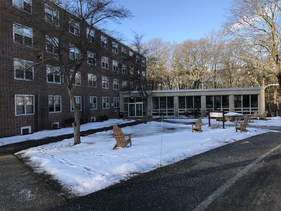 Angela Hall, the residence of all first year students. Angela Hall, the residence of all first year students. Located in the sleepy suburb of Weston, Massachusetts, Regis College is a hidden gem in the metro-Boston area. It’s compact campus is very pedestrian-friendly, and offers a mix of brand new buildings and historic structures built when the College was founded in 1927. As my sophomore student guide emphasized, the school community is tight-knit, and she wasn’t kidding - throughout our hour-long walking tour, she was repeatedly greeted by peers, professors, and staff members alike. When I asked her what was the best thing about Regis, she immediately replied “the welcoming atmosphere.” She said that she made friends easily and quickly, and that she has national and international classmates, including from California, France, and Saudi Arabia. The diversity on campus was definitely apparent, both in terms of the student population and in terms of the faculty and staff. The most popular (and most competitive) program is in the School of Nursing, but the College also features a School of Arts and Sciences, a School of Business and Communication, and a School of Health Sciences. For example, my tour guide was a Communications major with a minor in writing. The College also has a thriving NCAA Division III athletic program, with basketball and soccer being particularly popular (I also saw a snowy outdoor athletic field when driving around campus before my tour). However, don’t expect Regis to be a party school. There is no Greek life on campus, though there is always something to do (my tour guide explained that most students tend to stay on campus on the weekends). My sense is that typical Regis students study hard and work hard, spending their free time volunteering. This was echoed by my tour guide, who talked at length about service trips that the College regularly organizes (for example, she will be going on a pilgrimage to France this summer). It makes sense: Regis College was founded by the Congregation of the Sisters of St. Joseph of Boston, and that strong Catholic tradition definitely continues to inform the school. Though Regis welcomes students from all religious backgrounds, crucifixes and crosses were ubiquitous around campus, and my tour guide mentioned mass and prayer as part of daily life on campus (so, for those of you out there who may have more secular leanings or do not feel comfortable with religious paraphernalia, Regis may not be the right fit for you). Here are 4 fun facts about Regis that I learned:
Overall, Regis College is a great place to learn in a student-centered setting, where a small community of enthusiastic students work hard to make the world a better place. It certainly struck me as welcoming and friendly environment where students are encouraged to share their knowledge, skills, and talents with others. For more information on Regis College, or to schedule your own campus visit, check out their website: http://www.regiscollege.edu/. If you’re a high school student (or a parent of one) with learning differences, you’re probably already an expert on working with your support team on an IEP, and on getting the accommodations that you need in school. But what about college? Did you know that levels of support for LD students vary across universities? This is just one of several crucial facts that every prospective college student with a learning difference needs to know when choosing a school. Here’s more:
1) Students run the process in college: Once diagnosed, a student in a primary or secondary school with an LD has the support of school counselors, therapists, parents, and teachers (to name a few), and it’s their job to make sure that you receive whatever accommodations you need. However, in college, the student is responsible for providing all necessary documentation to the school’s Office of Disability Services, and for discussing individual accommodations with professors. In other words, you are expected to be your own advocate! 2) Not all colleges provide the same support: While all universities must meet federal requirements to comply with the Americans with Disabilities Act (ADA), some schools offer better support than others. Check each school to see what services they provide and who provides them. There’s a big difference between having an un-trained peer tutor take class notes for you at a minimal-level support school, and working with a professional at a Learning Center to receive mentoring at a moderate-level support school. It’s up to each family to decide what’s the best level of support for each student, and to choose the right school that will give that assistance. 3) Students should research fee-based programs: Depending on the college, a school may offer additional help to students through fee-based programs. For example, some universities have special social support for students with autism, providing separate student housing or orientations. Other schools feature comprehensive programs specifically designed for students with learning differences, which may include coaching and organizational workshops. Check out http://www.basseducationalservices.com/ for more information. 4) Get tested BEFORE you graduate from high school: Because of federal law, primary and secondary schools are required to pay for a student’s diagnostic testing. This is NOT the case for students in college! Moreover, colleges often want “adult-level” psycho-educational testing done (meaning diagnostic testing performed on someone at least 16 years old) to qualify for Section 504 accommodations (part of the Rehabilitation Act, which, like the ADA, covers any post-secondary school that receives federal funds). For more information on Section 504, check out http://www.pacer.org/parent/504/. Having a learning difference should NEVER discourage you from going to college - there is a school out there for everyone! The more you know about what to look for in that school, the more success you’ll enjoy once you get there. Have more questions? Check out my Resources page: https://www.apluscollegeconsult.com/resources.html Anyone who has ever applied to a higher educational institution recently knows that the college admission process is complicated, confusing, and frustrating. Now, imagine that you are the first person in your family to have the opportunity to apply to college. Where do you start? What do you need to do? What do your parents need to do? Who can you ask for help?
While getting into college may seem overwhelming at first, many First Generation (FG) students and their families successfully navigate this journey to higher education by accessing a variety of resources that support them throughout this undertaking. Here are two key things that every FG student needs to do right now to make those college dreams a reality: 1) Find a mentor: The most successful people in life always credit their mentors for providing guidance and inspiration, and this is especially true for First Generation students. This person can be your school counselor, a trusted teacher, or someone else from your community who knows your abilities AND knows how college admission works. This mentor will be your cheerleader, believing in you even when you feel as if it’s all impossible. Identify this person in your life, and work closely with them as you create your college list, complete the Common Application, and write your essay(s). Don’t know where to find a mentor? Check out the National Association for Admission Counseling’s website directory to find a College Access Program near you: http://casp.nacacnet.org/ . Here, you will be able to find people who specifically assist underserved populations get into college. And if you feel like you’re imposing, know that you’re not - your mentor values this relationship as much as you do! Remember: someone once helped your mentor the way that s/he supports you now, and s/he feels great being able to pass it forward. Someday, you will, too! 2) Use online resources: Thanks to the internet, First Generation students may connect with each other and share advice on everything, from application planning checklists to where to look for scholarships and grants. For example, watch this collection of interviews with First Generation students talking about how they made it to college: https://www.youtube.com/watch?time_continue=34&v=UXsbnmPSaDc . Become a part of these online communities to see that you are not alone, and that you can do this! Often, these websites also offer links to other helpful material, such as a guide for college terms for parents in Spanish. Check out http://www.firstinthefamily.org/highschool/Introduction.html and http://www.imfirst.org/#! to get started! Doing these two steps will make a big difference in your college journey, and you’ll be empowered to be that education trailblazer in your family! Have more questions? Check out my Resources page! The National Association for College Admission Counseling (NACAC) is a tremendous resource for everyone working in the college counseling field, and their annual conference provides much insight into current trends in college admission. This year's gathering in Boston was no exception! While it there was truly an *abundance* of all kinds of information available, her are my top 3 major take aways from the 2017 NACAC conference:
It all began when I tried to find a place to park.
This year’s annual conference for the National Association for College Admission Counseling (NACAC) was happening at the Boston Convention and Exposition Center (BCEC), and I had searched the web for days in advance, trying to figure out where I was supposed to leave my car while attending this event. I had known about NACAC since I worked in the Admission Office at Olin College in the early 2000s, but I had never attended one of their events before. Moreover, this was going to be my first professional conference as an independent college consultant, and I was both excited and nervous. Armed with my freshly-printed business cards, I woke up extra-early Thursday morning to make sure that I didn’t miss a minute of the day’s events. However, in order to participate fully in the conference, I first needed to find a place to park. Being more confused than ever after my web research attempts, I decided just to drive to the BCEC and to see what happens. To my surprise, there was ample street parking around the BCEC (probably because I was there so early!), so I just pulled into a spot, dropped some quarters into the meter, and made a mental note to move my car after the 2-hour limit expired. One challenge down. Next, I had to find my way into the BCEC. Sounds simple, right? One would think so, but I ended up walking up and down the street, finding myself blocked by jersey barriers, fences, and locked doors. The particularly cruel part was that I could see through the glass windows of the adjacent Westin hotel, and watched helplessly as people with NACAC name tags milled about the hallways with their papers and coffee cups in hand. After finally finding a door that opened, I stood at the bottom of an escalator somewhere in the Westin with no idea where to go. At that very moment, I saw someone I recognized - a former colleague from Olin! Emily “Pete” Petersell from the Admission Office was walking towards me, and offered a very friendly greeting! It turned out that she was heading to the Registration desk before the beginning of her morning meeting, and we agreed to find it together. After one flight of escalators, we bumped into another friendly face, Emily’s co-worker Susan Hartley Brisson. Susan and I had worked together on the Admission Committee several years ago, when I was a voting faculty member. We made lunch plans together, and Pete and I continued to Registration. Meeting those two wonderful women made my morning anxiety subside - in a *huge* sea of strangers (who all seemed to know each other!), I had found two allies who wished me well. The rest of my day was full of more confusion - I swear, I must have walked for miles in circles around the inside of the BCEC! - and more effort trying to figure out how things worked at this event. Everything was puzzling to me, from deciphering the different educational sessions and their locations to reading the floor map of the exhibition hall full of vendors. Nothing was easy, everything felt frustrating. And then it hit me: I was (re)living my first few weeks as an undergraduate! You may laugh, but the parallels are definitely there: I was entering a whole new world in a completely foreign environment to me, where I practically knew no one and had no idea how things worked. I was “the freshman” all over again, wandering around with a confused look on my face, trying to figure out where my assigned classrooms were located and how I was supposed to find something that was “on reserve” at the main library. Just like being a first year student, it was exciting, overwhelming, frustrating, exhilarating, and everything in between - all at once. So, why am I relating my “freshman” experience with you? Because being immersed into this intense, new physical and mental space reminded me of the importance of empathy when working with adolescents and young adults. For folks who have been out of the “student” role for a while, it’s far too easy to forget the stress involved in the transition from “high school senior” to “college first year.” High school seniors may be excited about the prospect of applying to all of these amazing colleges and universities, but they are also worried about whether or not they will fit in and find new friends, whether they’ll choose classes that they like, whether they will graduate with enormous debt, and about whether or not they will pick the best school for them to attend. Meanwhile, first year undergraduates all over the country are only now beginning to feel a little more comfortable in their own skin, after weeks of a fun, confusing, and stressful orientation in their brand new worlds (plus, the euphoria of that first year should begin to wear off approximately next week, once those first graded assignments are returned and reality hits - higher education is hard, work has to get done, and the party is over!). In short, change is tough, even when it’s a positive change, and it’s paramount for the adults in a student’s life to be supportive, encouraging, and understanding of this. It’s our job as teachers, counselors, and guides to remind our students that beginnings are always the hardest, no matter your age. And, just as I survived my latest “beginning” in the world of NACAC and had a very productive second day at the conference, so, too, will our high school seniors survive the college admission process and that transition to life in higher education. One might even figure out where to park next time one is in Boston! |
AuthorMaruta Z. Vitols is an independent educational consultant in the metro-Boston area. When not helping students achieve their dreams, she enjoys hanging out with her dog, exploring new places with her husband, and doing yoga. Archives
April 2023
Categories |

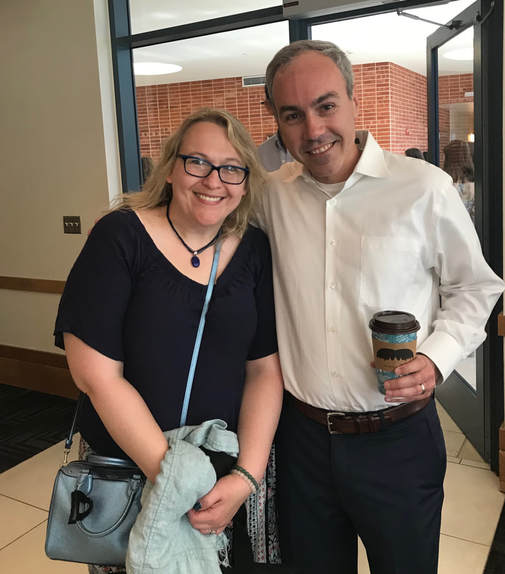
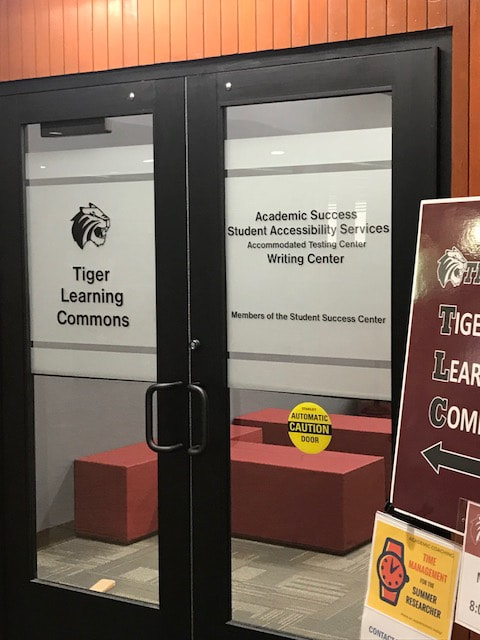
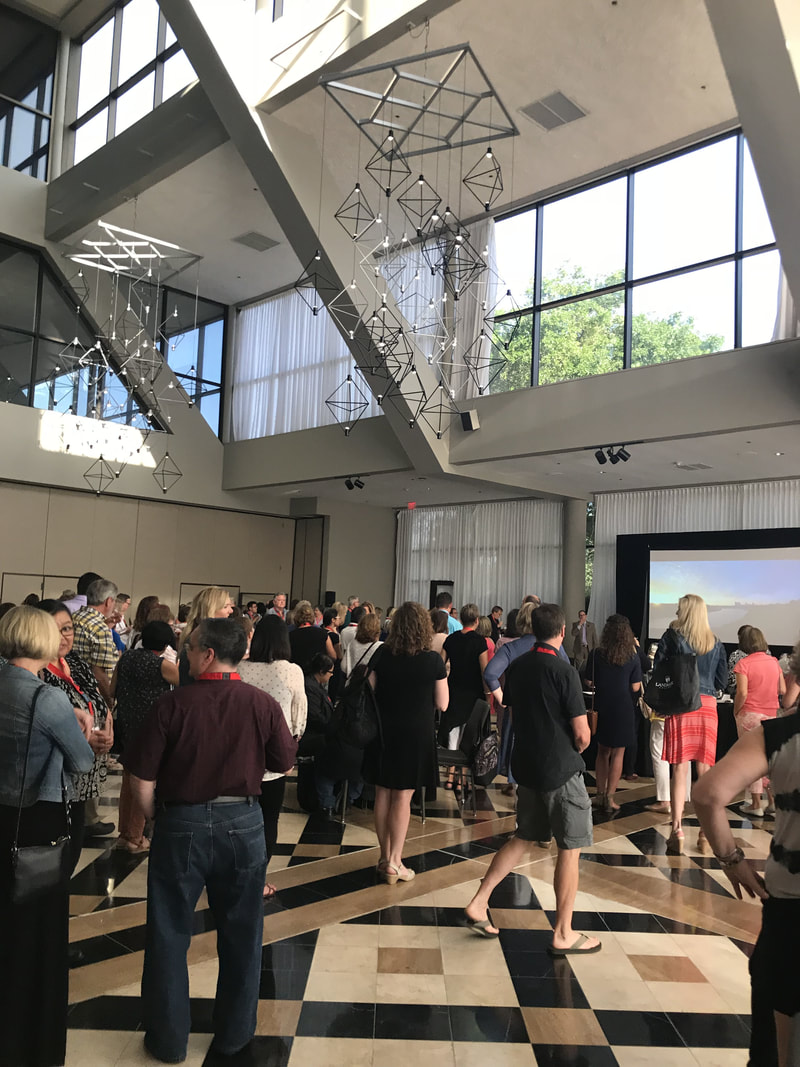
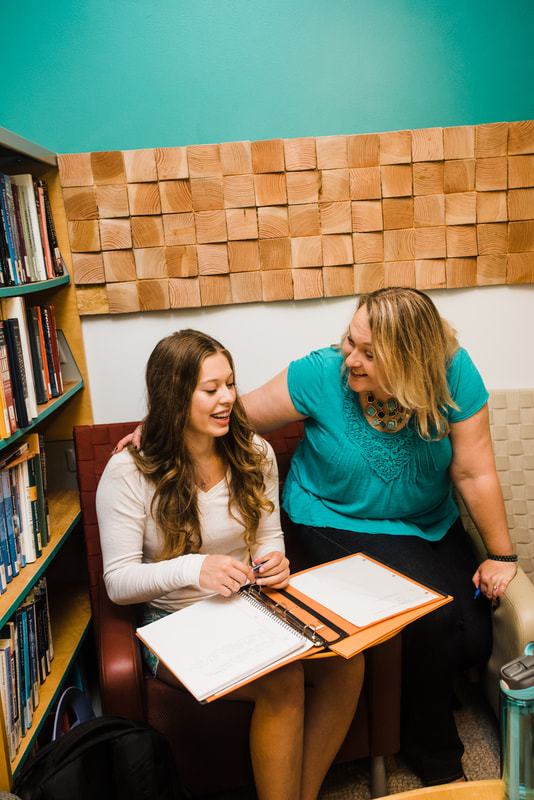
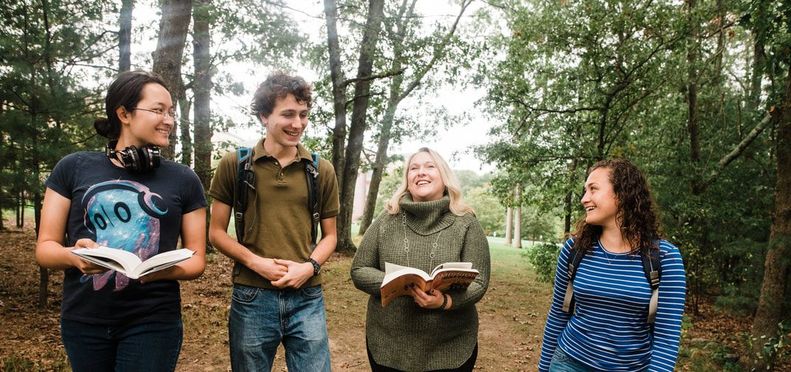
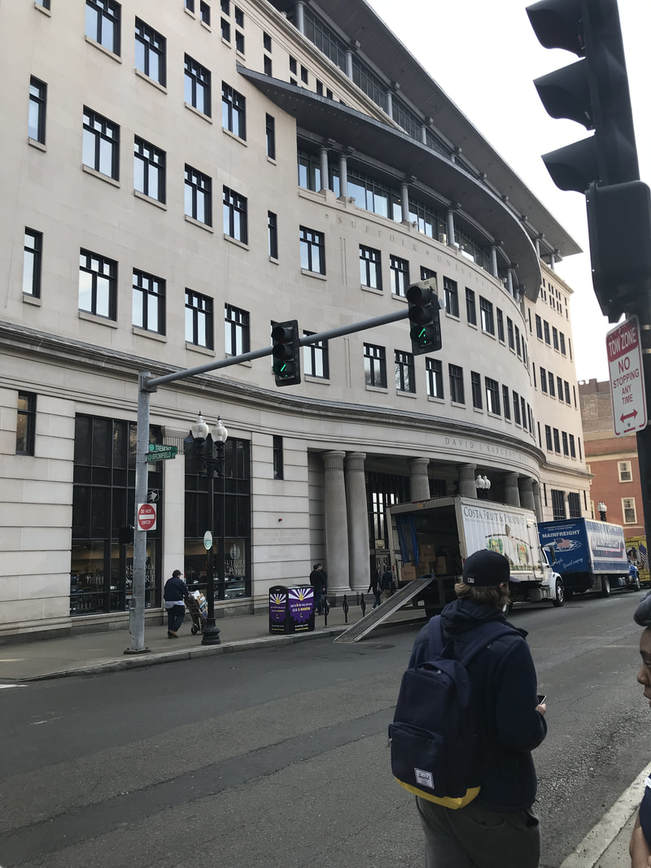
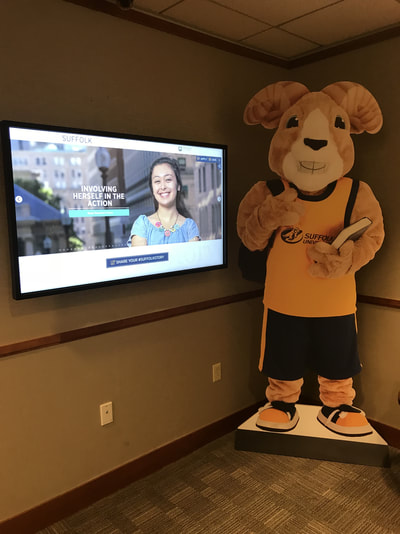
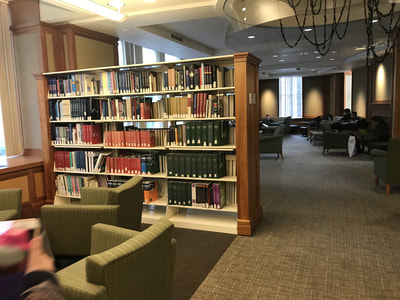
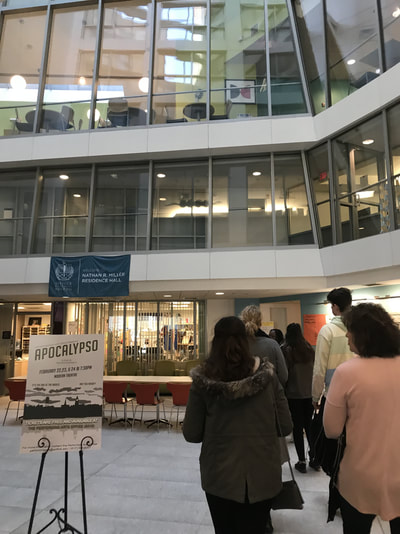
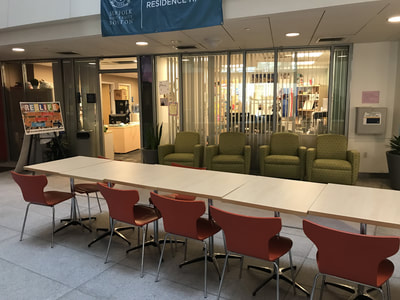

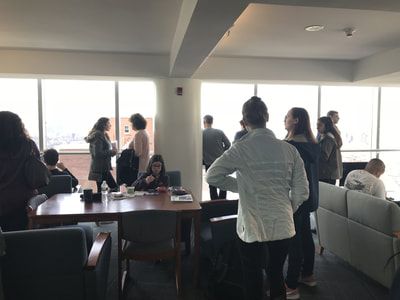
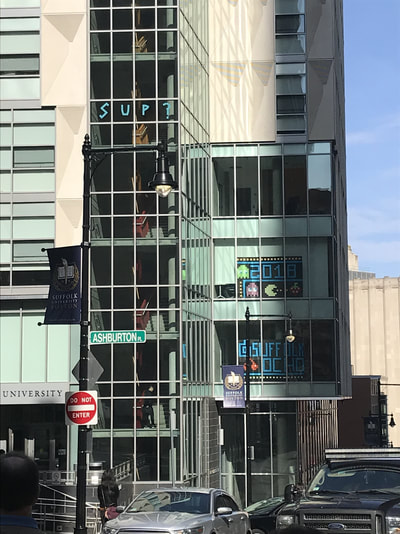
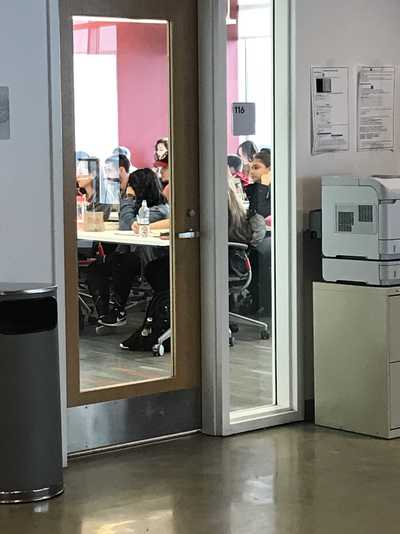
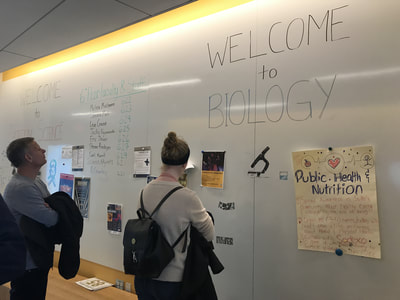
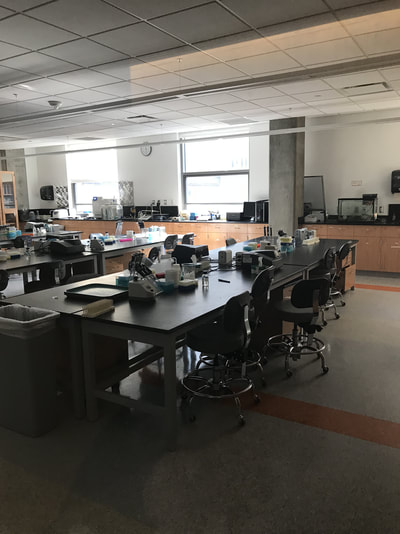
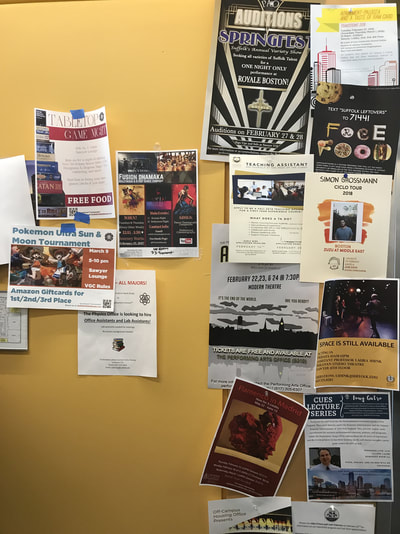

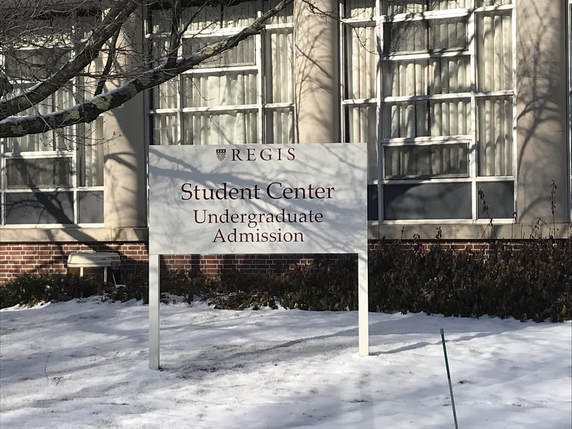
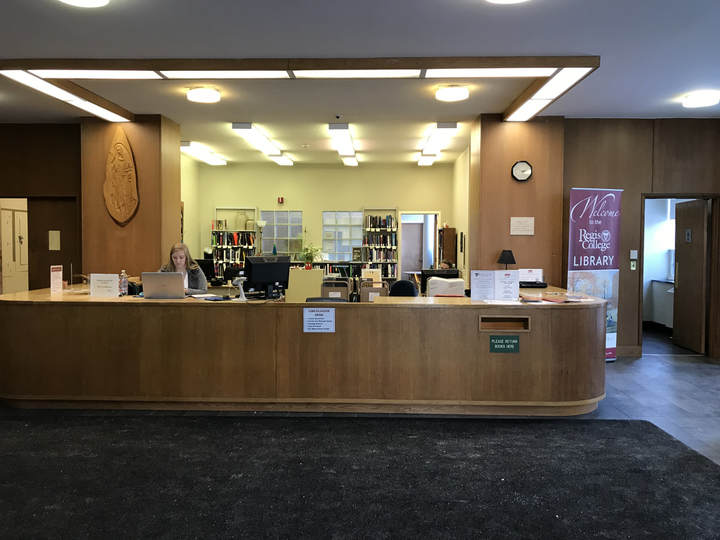

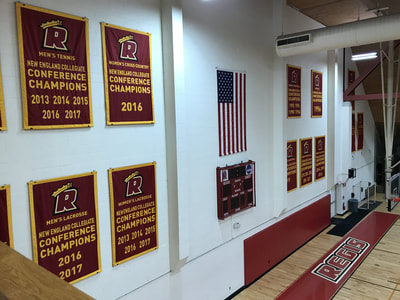
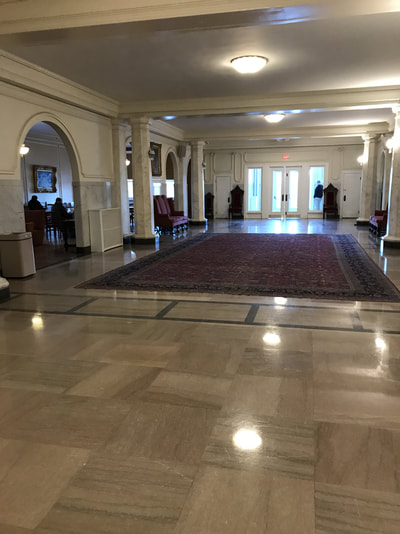
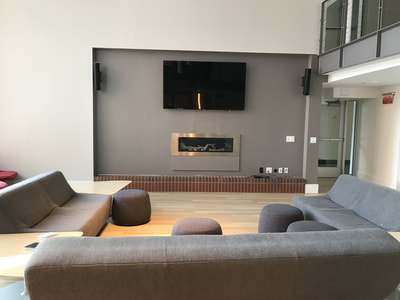
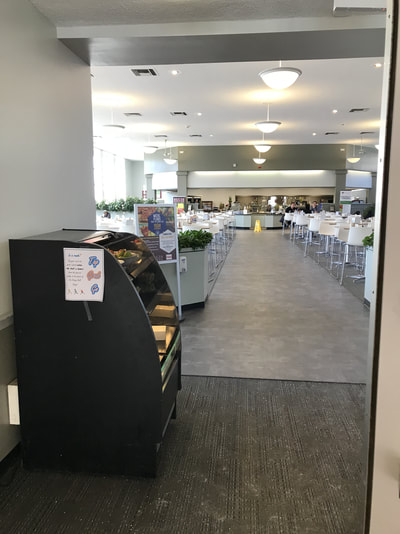
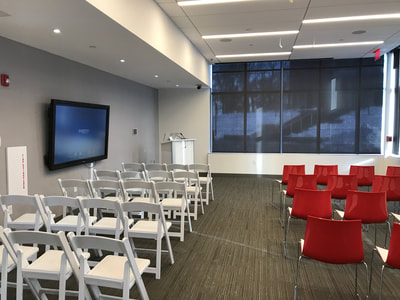
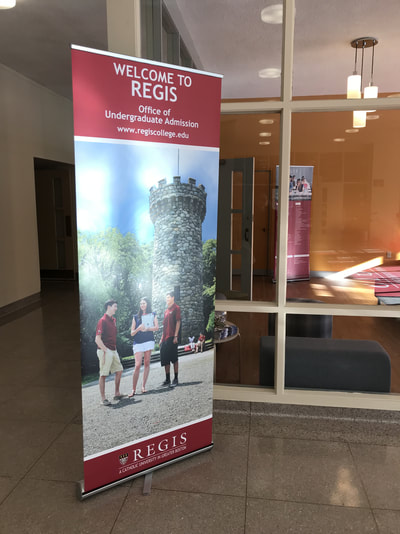
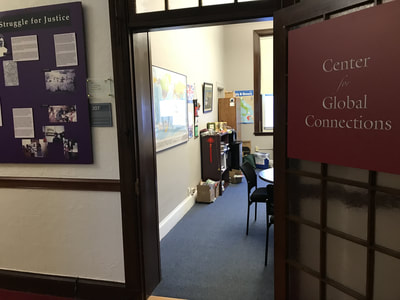
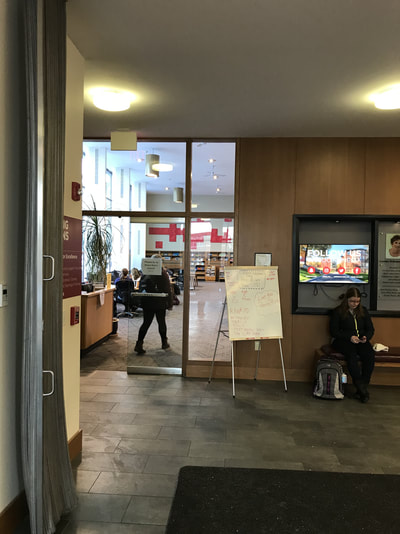
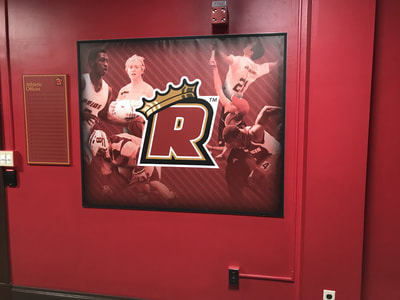
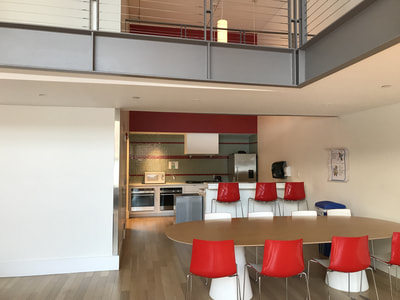
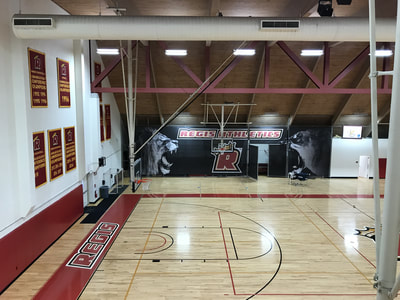
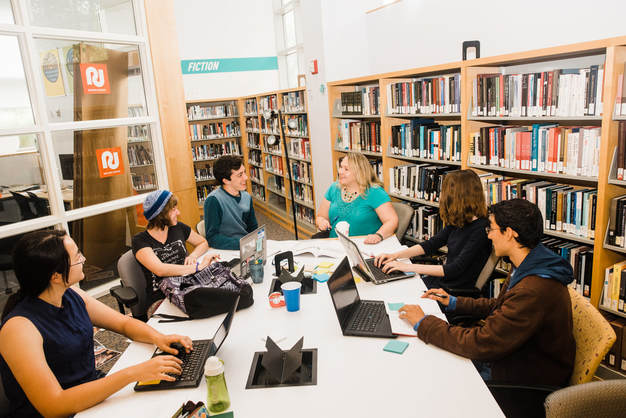
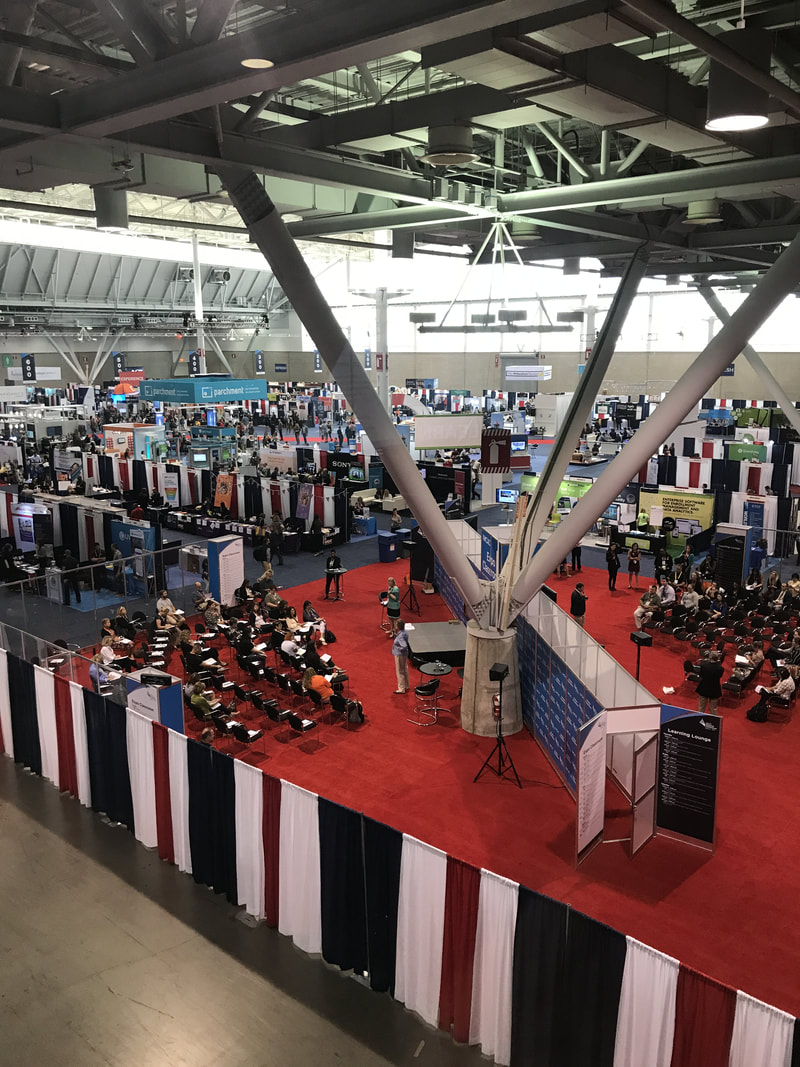
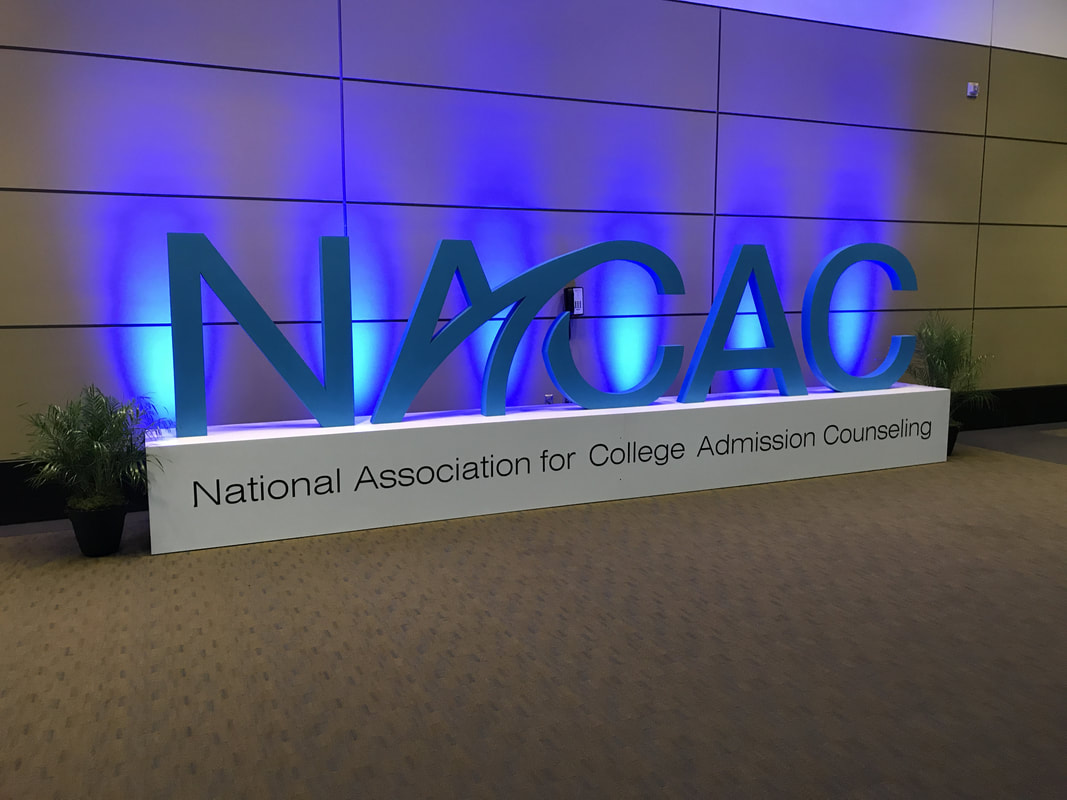
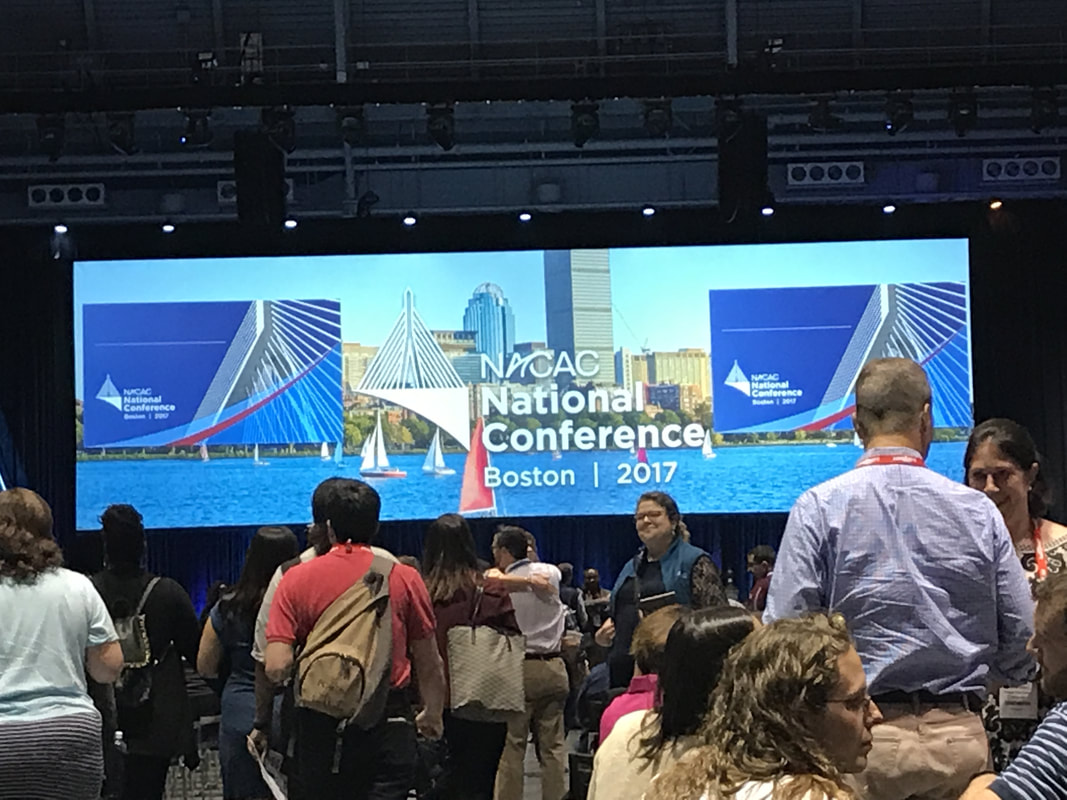
 RSS Feed
RSS Feed